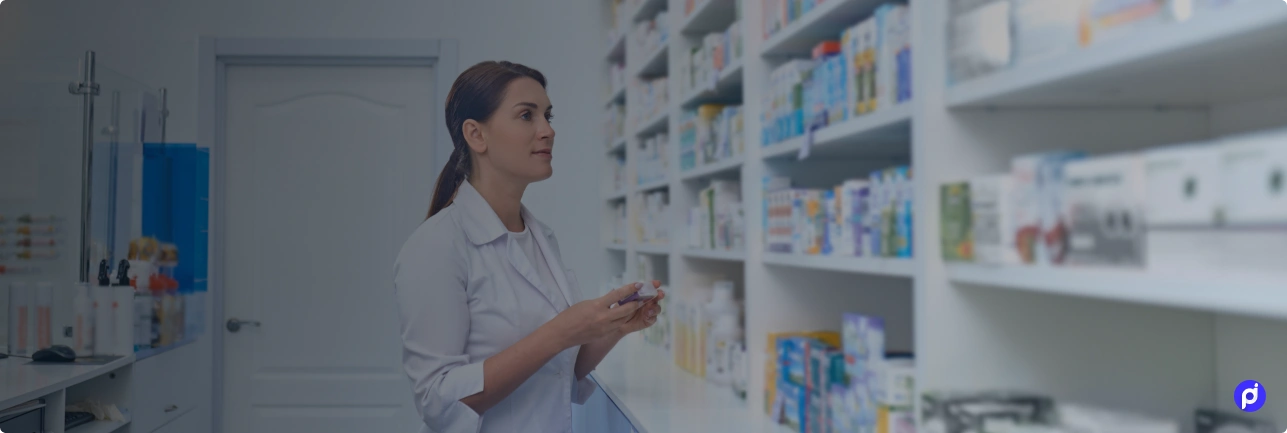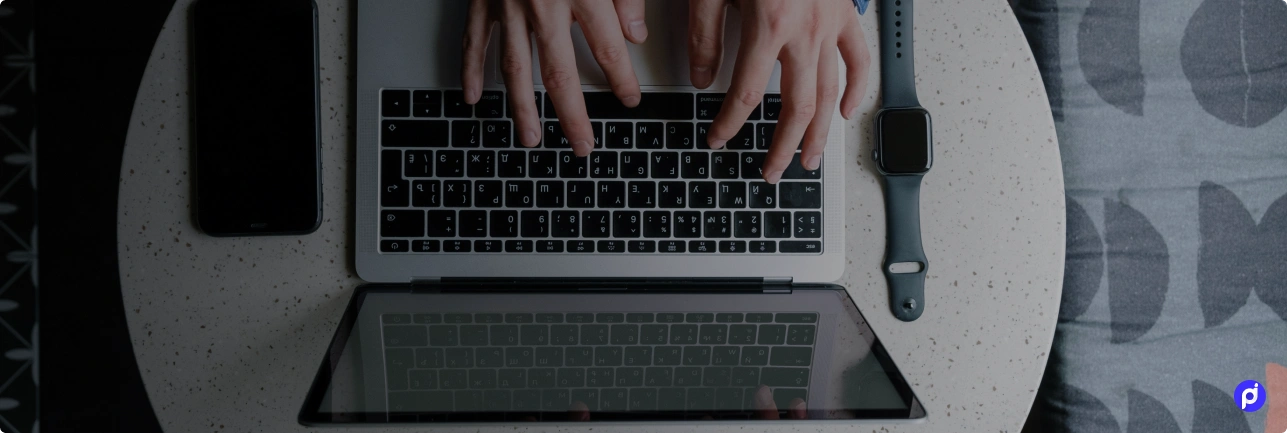Staying healthy and getting proper information on medicines is a fundamental right of people. Today robots programmed to function like humans can help to achieve complex tasks. AI is there to protect the fundamental rights of people. One area where AI is making a significant impact is pharma marketing. With AI-powered healthcare apps, pharmaceutical companies can gain valuable insights into patient behavior, preferences, and needs, leading to more effective marketing strategies. And do you know who are the people behind this? It’s a Healthcare App Development Company. Let’s study how AI-powered health care apps are revolutionizing pharma marketing.
AI in Medicine: A New Era
Artificial Intelligence in medicine has created a new era. AI-powered applications. AI-powered healthcare apps made by Healthcare App Development Companies utilize advanced algorithms and machine learning techniques to analyze vast amounts of data. This data can include patient demographics, medical histories, social media interactions, and real-time health metrics. By processing this information, these apps can provide valuable insights that can be used to inform marketing decisions.
Ways AI-Powered Healthcare Apps Can Transform Pharma Marketing:
Personalized Marketing Campaigns
AI-powered healthcare apps can enable pharmaceutical companies to create highly personalized marketing campaigns. By analyzing patient data, these apps can identify specific segments within the target audience and tailor marketing messages accordingly. This personalized approach can improve engagement and increase the likelihood of conversions.
Enhanced Patient Engagement
Smart apps embedded with artificial intelligence can foster deeper patient engagement by providing interactive features and personalized content. For example, these apps can offer virtual consultations, medication reminders, and educational resources. Pharmaceutical companies can build stronger relationships with patients and improve brand loyalty by delivering timely information.
Improved Market Research
Healthcare App Development Companies are focusing on AI-powered app making because it can be used to conduct market research more efficiently and effectively. Using such apps, pharmaceutical companies can gain insights into emerging market needs and identify potential opportunities. This information can be used to inform product development, pricing strategies, and marketing initiatives.
Predictive Analytics
AI-powered healthcare apps can leverage predictive analytics to forecast future trends and anticipate patient needs. By analyzing historical data and identifying patterns, these apps can help pharmaceutical companies make informed decisions about their marketing efforts. This can include predicting which patients are most likely to respond to a particular marketing campaign or identifying emerging markets for new products.
Data-Driven Decision Making
AI-powered healthcare apps provide pharmaceutical companies with a wealth of data that can be used to make data-driven decisions. By analyzing patient behavior, preferences, and outcomes, these apps can help identify the most effective marketing channels and strategies. This data-driven approach can improve ROI and optimize marketing spend.
Reaching the Right Destination
To get the exact AI-powered healthcare app for your marketing needs, it is essential to choose a Healthcare App Development Company. These companies can add life to your marketing by giving customized apps that meet the specific needs of your business.
Conclusion
AI-powered healthcare apps offer significant potential for transforming pharma marketing. By leveraging these innovative technologies, pharmaceutical companies can gain valuable insights into patient behavior, preferences, and needs, leading to more effective marketing strategies and improved business outcomes. An expert Healthcare App Development Company can help charge your marketing efforts with AI-powered apps with which you fight with your competitors.
The FAQ’s:
1. How do AI-powered healthcare apps collect patient data?
AI-powered healthcare apps collect patient data through various means, including:
- Direct input: Patients may provide information directly through the app, such as their medical history, symptoms, or lifestyle habits.
- Integration with wearable devices: Apps can connect with wearable devices like fitness trackers or smartwatches to gather real-time health data.
- Integration with electronic health records (EHRs): Some apps can access patient data from EHRs, providing a comprehensive view of their health information.
Social media monitoring: Apps may analyze social media posts to gain insights into patient behavior and preferences.
2. What are the potential privacy concerns associated with AI-powered healthcare apps?
- Privacy: It is a major concern when it comes to AI-powered healthcare apps. Some potential risks Data breaches: There is a risk of unauthorized access to patient data, which could lead to identity theft or other harm.
- Data misuse: Patient data may be used for purposes other than those intended, such as targeted advertising or research without consent.
- Algorithmic bias: AI algorithms may be biased, leading to discriminatory outcomes based on factors like race, gender, or socioeconomic status.
3. How can pharmaceutical companies ensure the ethical use of AI-powered healthcare apps?
Pharmaceutical companies can ensure the ethical use of AI-powered healthcare apps by:
- Adhering to data privacy regulations: Companies should comply with relevant data privacy laws, such as GDPR or HIPAA.
- Obtaining informed consent: Patients should be informed about how their data will be used and provide explicit consent.
- Implementing robust security measures: Companies should take steps to protect patient data from unauthorized access.
- Conducting regular audits: Regular audits can help identify and address potential ethical issues.
4. What is the future of AI in pharma marketing?
The future of AI in pharma marketing is promising. As AI technology continues to advance, we can expect to see even more sophisticated and personalized marketing campaigns. Some potential future developments include:
- Predictive analytics: AI can be used to predict future trends and anticipate patient needs, allowing pharmaceutical companies to be proactive in their marketing efforts.
- Natural language processing: AI-powered chatbots and virtual assistants can provide personalized support and information to patients.
- Augmented reality: AR can be used to create interactive and engaging marketing experiences.
5. How can pharmaceutical companies choose the right AI-powered healthcare app development company?
When choosing an AI-powered healthcare app development company, pharmaceutical companies should consider the following factors:
- Experience: Look for a company with experience in developing healthcare apps and a proven track record of success.
- Expertise: Ensure that the company has expertise in AI and machine learning technologies.
- Data privacy and security: The company should have a strong commitment to data privacy and security.
- Ethical considerations: The company should be committed to ethical AI practices.
- Customization: The company should be able to customize the app to meet the specific needs of the pharmaceutical company.












